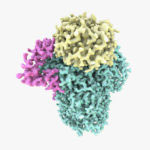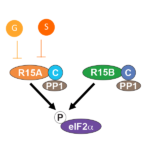
Genes are encoded in DNA and need to be copied into an intermediate mRNA molecule that contains the instructions to allow synthesis of protein. Almost every mRNA has a repetitive sequence at one end called a poly(A) tail. The length of this tail specifies the amount of time that the mRNA is present in the cell, and how often it is translated into protein. Errors or changes in the tail are found in human diseases including β-thalassemia, thrombophilia and cancer, as well as viral infections.




